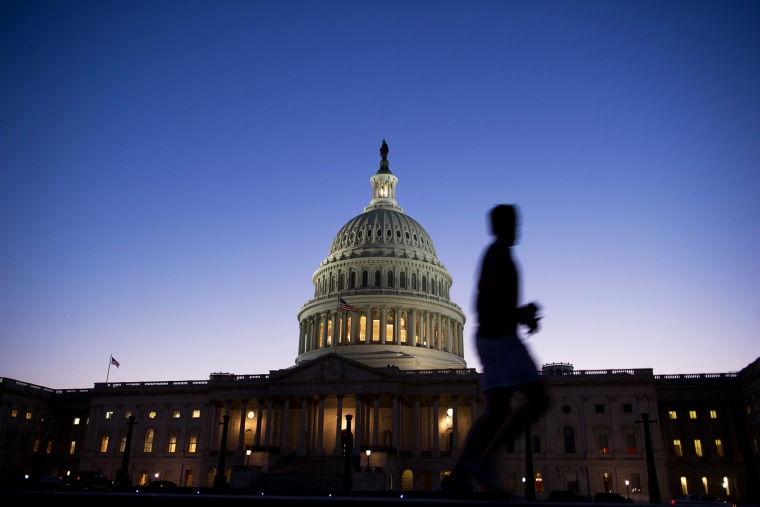There's uncontested data that suggests today's Senate Republicans are further to the right than any GOP Senate conference in the history of the party. Indeed, given there used to be some moderate-to-liberal Republicans in the upper chamber, all of whom are now gone, the radicalization of GOP senators seems pretty obvious.
And with that in mind, it's tempting to think Senate Republicans just couldn't move any further to the right, having hit some kind of ideological peak. That assumption would be wrong -- Ron Brownstein explains this week that the 2014 elections now seem likely to push the GOP even further off the ideological cliff.
[A] look at the candidates' agendas this year finds an almost indivisible consensus behind deeply conservative positions among the 14 non-incumbent Senate Republican contenders with a plausible chance of winning. (The 14 include the challengers for the 11 most threatened Democratic seats and the GOP nominees for Republican open seats in Georgia, Nebraska, and Oklahoma.) [...] Ernst may hold the pole position on conservative aspiration, but the other Republicans racing toward the Senate are not far behind.
Within this crop of GOP candidates, most of whom seem likely to win, all oppose raising the minimum wage. All reject climate science. Nearly all hope to destroy the Affordable Care Act. All reject bipartisan compromise on comprehensive immigration reform. Nearly all oppose background checks on firearm purchases. All oppose marriage equality.
The conventional wisdom is that the party nominated unelectable extremists in 2010 and 2012, limiting Republican gains in the Senate, and learned a valuable lesson in 2014. Those assumptions are, at best, suspect. As Brownstein put it, "While some analysts have theorized that a GOP Senate takeover would encourage the party to cut more deals with President Obama, the unswervingly conservative tilt of the Republicans likely to join the upper chamber points instead toward continued -- even heightened -- confrontation."
Right. The more the party is rewarded for extremism, the more extremist the party will be. GOP primary voters didn't nominate pragmatic centrists to run in Senate races this year; they nominated very conservative candidates who are arguably to the right of the median in the current Republican Senate conference.
Part of this is the result of an often-overlooked dynamic: the House may be unpopular and unproductive on a historic scale, but many House members are poised to get a promotion. Republicans like Cory Gardner (Colo.), Tom Cotton (Ark.), Bill Cassidy (La.), James Lankford (Okla.), Shelley Moore Capito (W.Va.), and Steve Daines (Mont.) may be part of a ridiculous House GOP conference, marked by radicalism, dysfunction, and aversion to compromise and governing, but they're all favored to join the world's most deliberative body in January.
Not to put too fine a point on this, but when right-wing House members get promoted, the obvious result is a right-wing Senate.
